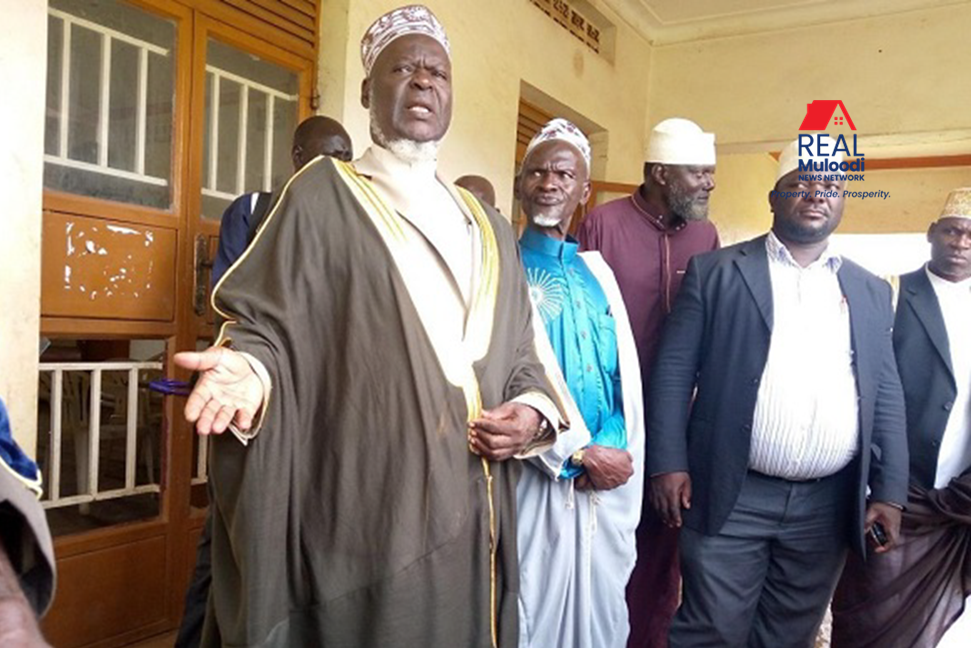UGANDA, Kampala | Real Muloodi News | The Uganda Muslim Supreme Council (UMSC) has taken a significant step towards reforming property management and ending disunity among Muslims by establishing a board of trustees for property and endowment (Awqaf) management.
Led by Abubakar Mugaino and deputised by Hajji Jamad Luuta Musoke, the board of trustees will have representation from all Muslim regions and is tasked with restoring order to the management of Muslim properties.
Professor Muhammad Lubega, the national chairperson of UMSC, stated that the new initiative seeks to revolutionise property management from the mosque level to the national level.
The board will oversee the management of Muslim community-owned assets in Uganda, many of which are idle, have been taken over by unscrupulous individuals, or are poorly managed.
Individuals of exceptional integrity from different regions were selected by the joint session.
During the swearing-in ceremony, the Mufti of Uganda, Sheikh Shaban Ramadhan Mubaje, urged the members to execute their duties without fear or favour.
UMSC owns several properties and assets throughout the country. With the establishment of the board of trustees, Professor Lubega called on anyone unlawfully occupying any land or property belonging to UMSC and its branches to register their occupancy before action is taken.
He cited businessman Hassan Basajabala, who illegally occupied more than 30 acres of Muslim land in Bushenyi and developed it, including constructing a university and a hospital.
Professor Lubega urged those in similar situations to register their occupancy with their local Muslim districts before it’s too late.
Muslims have been entangled in property disputes resulting in a split in leadership. A group based in Kibuli accused Mufti Mubaje’s leadership of mismanaging Muslim property, with some being sold illegally.
In 2012, President Museveni directed Prof Tarsis Kabwegyere to investigate the root causes of recurring conflicts and disunity among Muslims, as well as the irregular sale of community properties.
The committee’s report, released on June 20, 2014, revealed that 13 valuable properties in Kampala and ranches in Nakasongola, Kiryandongo, and Sembabule had been unlawfully sold in violation of a 2004 High Court order that barred the sale or mortgage of UMSC properties without a unanimous resolution from its executive committee.
The report recommended an immediate ban on any further sale, lease, transfer or deal in any way in the property until the ban is lifted.
The joint session also established the 21-member Muslim arbitration and reconciliation committee, led by Sheikh Obed Kamulegeya and deputised by Sheikh Luutu Sulaiman Wandera.
Professor Lubega noted that the committee would help Muslims settle their internal issues and conflicts before rushing to courts of law, which has tarnished Islam’s image over the years.
The new UMSC leadership has established a strategic development plan based on seven pillars. These include improving the socio-economic well-being of Muslims, enhancing UMSC’s financial strength by tapping into its resources controlled by unscrupulous individuals, and improving education by establishing more schools to address the current shortage and poor performance.
Other pillars include health, sanitation, and capacity building, which will involve setting up a central national theological college to train Muslim leaders and expanding institutional development by establishing functional structures and systems from the mosque to the national level.
The plan’s first-year budget of USh74 billion will be sourced from different funding streams, including Zakat, a form of alms-giving in Islam, and other donations from well-wishers and development partners.
READ MORE LIKE THIS:
Works and Transport Minister Launches Building Industry Management System (BIMS)
Court Orders Absa Bank to Return Illegally Sold School Property



